In July, WaveLength gave Wigtownshire Women’s Aid a television and DVD player. These gifts have helped women on their road to recovery. Continue reading Helping Wigtownshire Women’s Aid
Tackling social isolation and loneliness: Public Policy Exchange Symposium
Earlier this week, WaveLength attended the Public Policy Exchange event ‘Tackling Social Isolation and Loneliness’. There were presentations from the Minister for Loneliness Tracey Crouch MP, academics, as well as case-studies of great work going on around the country. This blog post talks about some of the highlights (there’s not enough room to talk about all the fantastic presentations unfortunately) and food for thought.
Continue reading Tackling social isolation and loneliness: Public Policy Exchange Symposium
WaveLength’s response to the government’s loneliness strategy
Technology, Social Media, and Loneliness
At WaveLength, we are interested in how technology can help reduce the circumstances of loneliness. Some of the debates on loneliness focus on social media. As Claudia Hammond said in the latest episode of the Anatomy of Loneliness, the relationship is ‘not straightforward’.
BBC Loneliness Experiment: WaveLength’s response
This week heralds another report on loneliness, this time by the BBC in partnership with the Wellcome Trust. At WaveLength, we welcome the results of the BBC’s Loneliness Experiment.
Continue reading BBC Loneliness Experiment: WaveLength’s response
All the Lonely People: Loneliness in Later Life
At WaveLength, we are delighted to welcome Age UK’s newly-released research ‘All the Lonely People: Loneliness in Later Life’.
Continue reading All the Lonely People: Loneliness in Later Life
Why Are Young People Lonely?
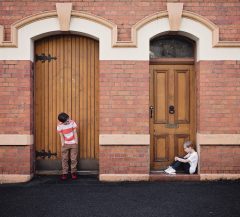 Over the past few years, loneliness has become a major talking point in the UK, with multiple studies being conducted to find out who is lonely and why. Earlier this year, one such study by the Office of National Statistics found that 16-24 year olds are more likely to be lonely than people over 65. And many people, including the Minister for Loneliness Tracey Crouch, seem keen to blame this problem on technology.
Over the past few years, loneliness has become a major talking point in the UK, with multiple studies being conducted to find out who is lonely and why. Earlier this year, one such study by the Office of National Statistics found that 16-24 year olds are more likely to be lonely than people over 65. And many people, including the Minister for Loneliness Tracey Crouch, seem keen to blame this problem on technology.
MSN Campaign Against Loneliness
Today, MSN is launching a Campaign Against Loneliness, to increase awareness of the issue across the UK. And we are very happy to be taking part in the campaign!
WaveLength and the Advisory Group
In January, the Prime Minister asked the Office for National Statistics to find a way to measure loneliness in the population. To help with this, a Technical Advisory Group was set up. The Advisory Group includes charities, researchers, and government departments who will help identify the best way to do this. Earlier this week, our CEO Tim attended an Advisory Group meeting to hear their progress and represent WaveLength.
Register for free support in a power cut
 Shirley Loveday at UK Power Networks has guest authored today’s blog post. Shirley works for the Customer Vulnerability team, promoting the support that is available free of charge to vulnerable people in the event of a power cut. People with a wide variety of needs can access this support, including pensioners, families with young children, and people with special needs, disabilities or health conditions. Many of WaveLength’s beneficiaries live in these circumstances, and could benefit from this support. But it is only available to people who register. So if you would benefit from this support, or if you know someone who would, please read more below and sign up!
Shirley Loveday at UK Power Networks has guest authored today’s blog post. Shirley works for the Customer Vulnerability team, promoting the support that is available free of charge to vulnerable people in the event of a power cut. People with a wide variety of needs can access this support, including pensioners, families with young children, and people with special needs, disabilities or health conditions. Many of WaveLength’s beneficiaries live in these circumstances, and could benefit from this support. But it is only available to people who register. So if you would benefit from this support, or if you know someone who would, please read more below and sign up!
Male Victims of Domestic Abuse
When we talk about domestic abuse, most people think about women being the victims, and men the abusers. And in the majority of cases, this is true. However, more than 40% of domestic abuse victims are male. In fact, it is estimated that 1 in 6 men will experience domestic abuse in their lifetime. Many male victims of abuse don’t know where to turn for help, so can be stuck in their abuse or end up homeless. However, there are some refuges that support and house male survivors of abuse.
About WaveLength
WaveLength is a charity that works to alleviate loneliness across the UK. We give technology to people who are lonely and living in poverty to help them reconnect with the world. We support people with a wide range of different needs. These include illness, disability, old age, domestic abuse, homelessness, refugees, and many more. In this video, our Ambassador Kirsty Rose Heslewood explains a little more about who we are and what we do.
Continue reading About WaveLengthHelping abuse survivors beat loneliness
In 2017, with the generous support of the Clothworkers’ Livery Fund, we started a project to help survivors of domestic abuse overcome loneliness. We have been gifting tablet computers to domestic abuse refuges and the people they help.
Minister for Loneliness
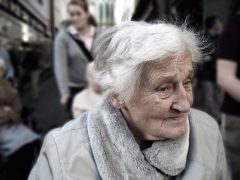 This week, Theresa May created the new role of Minister for Loneliness. The new Minister, Tracey Crouch MP, will continue the work started by the Commission on Loneliness, looking for ways to help alleviate loneliness in the UK. We think this is great news! However, there are some things that we want the Minister to be aware of as she starts her new role.
This week, Theresa May created the new role of Minister for Loneliness. The new Minister, Tracey Crouch MP, will continue the work started by the Commission on Loneliness, looking for ways to help alleviate loneliness in the UK. We think this is great news! However, there are some things that we want the Minister to be aware of as she starts her new role.
How to make Resolutions that will stick
 Was this New Year the start of a New You? If so, you are one of thousands of people across the UK this year who made New Year’s resolutions. But how do you make sure yours succeed?
Was this New Year the start of a New You? If so, you are one of thousands of people across the UK this year who made New Year’s resolutions. But how do you make sure yours succeed?
Happy Christmas from WaveLength!
 Christmas is nearly upon us, and with it comes the last-minute rush. There are presents to wrap, meals to cook, and journeys to make. But Christmas is also a good time to think about everything that you have achieved over the past year, and all the things that you are grateful for. At WaveLength, we are grateful for you – our supporters. Thanks to you, there are thousands more people around the UK who will be less lonely this Christmas.
Christmas is nearly upon us, and with it comes the last-minute rush. There are presents to wrap, meals to cook, and journeys to make. But Christmas is also a good time to think about everything that you have achieved over the past year, and all the things that you are grateful for. At WaveLength, we are grateful for you – our supporters. Thanks to you, there are thousands more people around the UK who will be less lonely this Christmas.
Tackling isolation in cancer patients
 Throughout 2017 we have been working with CLIC Sargent to help young cancer patients cope with the challenges of illness and treatment. Spending time in hospital can be scary and lonely – particularly for people who are transferred to hospitals far from home. It can also be difficult for their families as they visit and offer support. To help these patients and their families overcome the loneliness of their circumstances, we have developed two projects with CLIC Sargent through their outreach work and their Homes from Home.
Throughout 2017 we have been working with CLIC Sargent to help young cancer patients cope with the challenges of illness and treatment. Spending time in hospital can be scary and lonely – particularly for people who are transferred to hospitals far from home. It can also be difficult for their families as they visit and offer support. To help these patients and their families overcome the loneliness of their circumstances, we have developed two projects with CLIC Sargent through their outreach work and their Homes from Home.
£33,000 for survivors of domestic abuse
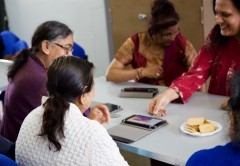 There are a number of stages to fleeing domestic abuse. First, the victim must plan their escape. They may need to research nearby refuges, or contact friends and family to tell them what is happening. Second, they flee. For some people, this means moving in to a domestic abuse refuge, where they will receive help setting up their new life. Finally, when they are ready, they move into a flat of their own. Thanks to a grant from the Clothworkers’ Company, we are able to help more survivors who are making this journey to safety.
There are a number of stages to fleeing domestic abuse. First, the victim must plan their escape. They may need to research nearby refuges, or contact friends and family to tell them what is happening. Second, they flee. For some people, this means moving in to a domestic abuse refuge, where they will receive help setting up their new life. Finally, when they are ready, they move into a flat of their own. Thanks to a grant from the Clothworkers’ Company, we are able to help more survivors who are making this journey to safety.
TV licences in domestic abuse refuges
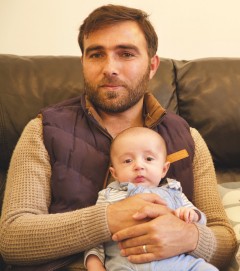 We are delighted to announce that, as a result of WaveLength’s campaigning, the TV licensing policy has changed to help people in domestic abuse refuges. Until now the rules around licences in refuges were confusing. Sometimes it wasn’t clear if someone staying in a refuge needed to register for a licence or not. But now, each refuge will only need one licence, no matter how many TVs or how many residents there are.
We are delighted to announce that, as a result of WaveLength’s campaigning, the TV licensing policy has changed to help people in domestic abuse refuges. Until now the rules around licences in refuges were confusing. Sometimes it wasn’t clear if someone staying in a refuge needed to register for a licence or not. But now, each refuge will only need one licence, no matter how many TVs or how many residents there are.
Families and Loneliness
 Jodi Picoult once wrote, “Having a family means you’re never alone.” But even in families, loneliness can be a problem. There are lots of reasons why. A new addition to the family, illness or disability and resettlement can all cause feelings of isolation. After all, feeling lonely is not the same as being alone. Here we explore some of the circumstances that can lead to people feeling lonely within their family.
Jodi Picoult once wrote, “Having a family means you’re never alone.” But even in families, loneliness can be a problem. There are lots of reasons why. A new addition to the family, illness or disability and resettlement can all cause feelings of isolation. After all, feeling lonely is not the same as being alone. Here we explore some of the circumstances that can lead to people feeling lonely within their family.
How technology helps lonely refugees
 At WaveLength, we work with organisations across the UK who are supporting newly-arrived refugees. As we have seen, loneliness and social isolation are two of the biggest challenges facing refugees in Britain today, and we work with these organisations to help overcome this loneliness. But how can technology help? In this week’s blog, refugees and their sponsors describe in their own words their experiences of loneliness and how technology can alleviate these.
At WaveLength, we work with organisations across the UK who are supporting newly-arrived refugees. As we have seen, loneliness and social isolation are two of the biggest challenges facing refugees in Britain today, and we work with these organisations to help overcome this loneliness. But how can technology help? In this week’s blog, refugees and their sponsors describe in their own words their experiences of loneliness and how technology can alleviate these.
Loneliness and Refugees
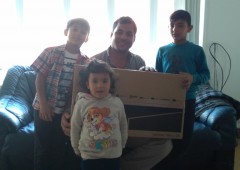 Loneliness and social isolation are the biggest challenges faced by refugees arriving in London. They have been forced to leave their home country, their community and often their family as they flee war and persecution. New refugees are keen to make friends and contribute to society, but they face language and cultural barriers that can make this difficult. These barriers can separate refugees from the people around them, and make building a new life very lonely work.
Loneliness and social isolation are the biggest challenges faced by refugees arriving in London. They have been forced to leave their home country, their community and often their family as they flee war and persecution. New refugees are keen to make friends and contribute to society, but they face language and cultural barriers that can make this difficult. These barriers can separate refugees from the people around them, and make building a new life very lonely work.
Join our team! Vacancies at WaveLength
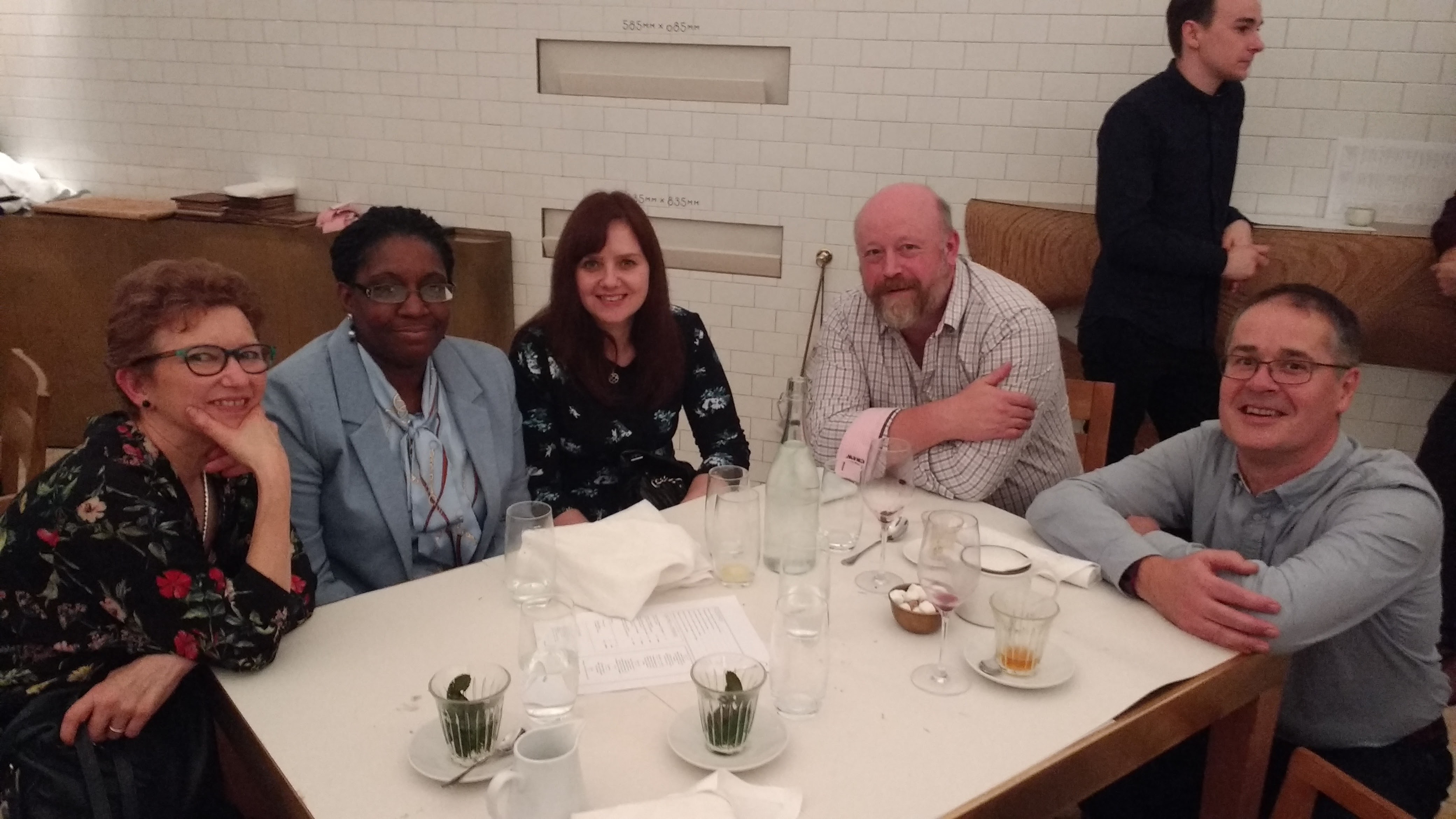 Are you planning the next chapter of your career? Looking for a new opportunity in the charity sector? If so, we might have the role for you! The WaveLength office houses a small team of friendly and enthusiastic staff. If you would like to be the newest member of our team, take a look at our latest vacancies below:
Are you planning the next chapter of your career? Looking for a new opportunity in the charity sector? If so, we might have the role for you! The WaveLength office houses a small team of friendly and enthusiastic staff. If you would like to be the newest member of our team, take a look at our latest vacancies below:
Mental health and making friends
 Friendship is a very important part of life. Friends give us someone to laugh with when the going is good and someone to turn to in times of need. But maintaining friendships or meeting new people can be hard, and living with a mental health problem can make it seem even more difficult. That is one of the reasons loneliness and mental health often go hand in hand. Investing in friendships or building new ones is vital to good mental health. In this week’s blog, we will share some tips on making friends and meeting new people.
Friendship is a very important part of life. Friends give us someone to laugh with when the going is good and someone to turn to in times of need. But maintaining friendships or meeting new people can be hard, and living with a mental health problem can make it seem even more difficult. That is one of the reasons loneliness and mental health often go hand in hand. Investing in friendships or building new ones is vital to good mental health. In this week’s blog, we will share some tips on making friends and meeting new people.
Mental health and Loneliness
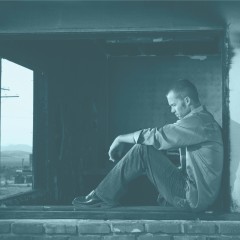 This month, the Spotlight on Loneliness campaign focuses on mental health. The relationship between this and loneliness is complicated. Having poor mental health can increase one’s chance of feeling lonely, and loneliness can be damaging to mental health. This month we will see both sides of the equation, and hear from some people working to help those affected.
This month, the Spotlight on Loneliness campaign focuses on mental health. The relationship between this and loneliness is complicated. Having poor mental health can increase one’s chance of feeling lonely, and loneliness can be damaging to mental health. This month we will see both sides of the equation, and hear from some people working to help those affected.
Carers, Dementia and Loneliness
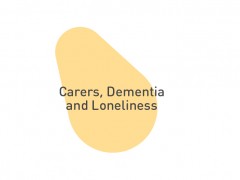 Many of the carers we support look after partners or family members who have dementia. Dementia can be physically and mentally debilitating, and people with dementia may need help with basic everyday tasks. Two of the charities we work with to support dementia carers are Essex Dementia Care and Dementia Friendly Keighley. We spoke to some of the staff and volunteers there to find out more about caring.
Many of the carers we support look after partners or family members who have dementia. Dementia can be physically and mentally debilitating, and people with dementia may need help with basic everyday tasks. Two of the charities we work with to support dementia carers are Essex Dementia Care and Dementia Friendly Keighley. We spoke to some of the staff and volunteers there to find out more about caring.
Look After Yourself To Look After Others
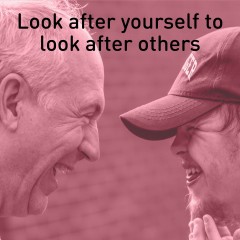 Every day around 6,000 people become carers and for many it’s a new experience. Many people may not even be aware the level of care and assistance they give to a family member or friend would class them as a full-time carer.
Every day around 6,000 people become carers and for many it’s a new experience. Many people may not even be aware the level of care and assistance they give to a family member or friend would class them as a full-time carer.
Carers Need Care Too
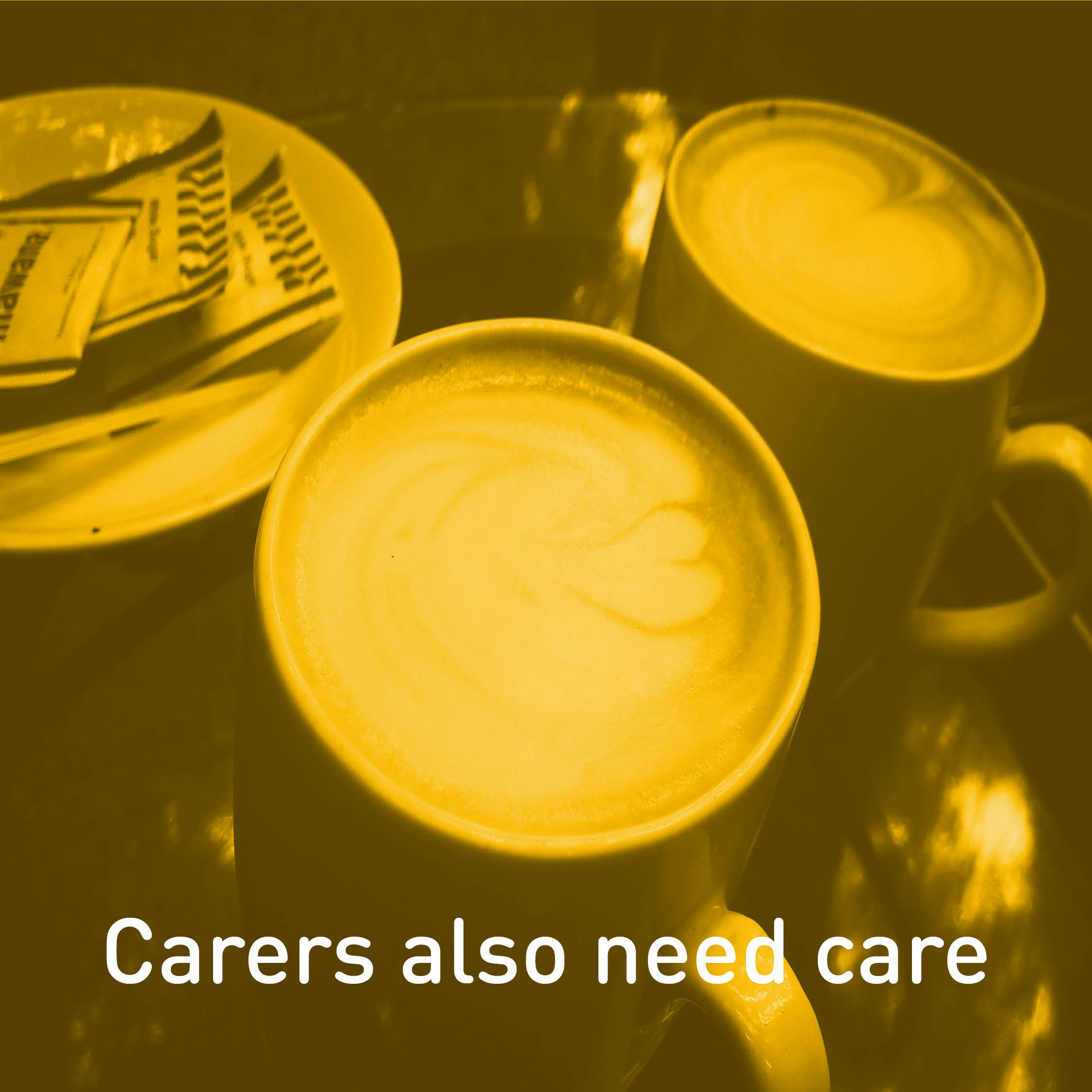
There are an estimated 6.5 million carers in the UK and statistics from the ONS (Office for National Statistics) have recently reported suicide rates for male and female care workers are now three times the national average.
How much time should children spend online?
 We have been hearing mixed messages this week about how much time children should spend online. First the Children’s Commissioner Anne Longfield compared young people’s Internet usage to bingeing on junk food and encouraged parents to stop them overindulging during the summer holidays. In response, the former head of GCHQ Robert Hannigan said that parents should encourage children to spend more time online developing their digital skills.
We have been hearing mixed messages this week about how much time children should spend online. First the Children’s Commissioner Anne Longfield compared young people’s Internet usage to bingeing on junk food and encouraged parents to stop them overindulging during the summer holidays. In response, the former head of GCHQ Robert Hannigan said that parents should encourage children to spend more time online developing their digital skills.
Continue reading How much time should children spend online?
How Carers become Lonely
 Throughout August we will be shining the spotlight on loneliness among carers. Nearly 7 million adults in the UK look after a sick or disabled family member or friend who cannot care for themselves. Carers often have little time to themselves and can become lonely and socially isolated.
Throughout August we will be shining the spotlight on loneliness among carers. Nearly 7 million adults in the UK look after a sick or disabled family member or friend who cannot care for themselves. Carers often have little time to themselves and can become lonely and socially isolated.
Jamie’s story: Spotlight on Disability
 We all know that life can be lonely sometimes – even for people who are surrounded by friends and family. Loneliness doesn’t necessarily come from being alone: it is caused by a mismatch between the social interactions you want and the ones that you actually get. Technology can help very lonely people to feel less alone, or can be a tool to help lonely people engage more with those around them. In today’s blog, we hear the story of Jamie, a young man with severe learning disabilities whose life was changed by the great work of Solihull Life Opportunities and access to some WaveLength technology.
We all know that life can be lonely sometimes – even for people who are surrounded by friends and family. Loneliness doesn’t necessarily come from being alone: it is caused by a mismatch between the social interactions you want and the ones that you actually get. Technology can help very lonely people to feel less alone, or can be a tool to help lonely people engage more with those around them. In today’s blog, we hear the story of Jamie, a young man with severe learning disabilities whose life was changed by the great work of Solihull Life Opportunities and access to some WaveLength technology.
Television, Loneliness and Disabilities
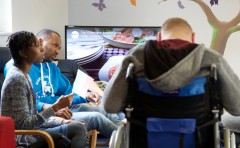 Many people believe that televisions isolate people, distracting them from spending time with friends or getting out into the “real” world. At WaveLength, we don’t agree with this. We see all the wonderful ways that televisions can bring people together, or bring the real world to those who can’t get on their own through illness or disabilities. This week’s blog is guest written by Solihull Living Opportunities, which provides care and activities to people with learning disabilities. Here SOLO tells us how they use their WaveLength Smart TV in their day centre Daylight.
Many people believe that televisions isolate people, distracting them from spending time with friends or getting out into the “real” world. At WaveLength, we don’t agree with this. We see all the wonderful ways that televisions can bring people together, or bring the real world to those who can’t get on their own through illness or disabilities. This week’s blog is guest written by Solihull Living Opportunities, which provides care and activities to people with learning disabilities. Here SOLO tells us how they use their WaveLength Smart TV in their day centre Daylight.
Spotlight on Disability – AAPNA
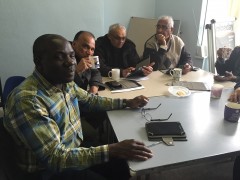 One of our partner organisations is AAPNA which offers home and respite services to disabled people in the BME community. We provided AAPNA with tablet computers which their clients use to Skype friends, download favourite music and take photographs to share with family members. We asked AAPNA to tell us a little about how loneliness affects their clients, and how their services help to alleviate this loneliness.
One of our partner organisations is AAPNA which offers home and respite services to disabled people in the BME community. We provided AAPNA with tablet computers which their clients use to Skype friends, download favourite music and take photographs to share with family members. We asked AAPNA to tell us a little about how loneliness affects their clients, and how their services help to alleviate this loneliness.
Loneliness and Disability
 This month we are exploring issues of loneliness and disability as part of our Spotlight on Loneliness month. A survey conducted by Sense in 2015 found that one in four disabled people feel lonely on a typical day – for young disabled people aged 18-34 this rose to well over one in three. This month we will discover some of the reasons for this trend, and explore ways that the loneliness of disabled people can be alleviated.
This month we are exploring issues of loneliness and disability as part of our Spotlight on Loneliness month. A survey conducted by Sense in 2015 found that one in four disabled people feel lonely on a typical day – for young disabled people aged 18-34 this rose to well over one in three. This month we will discover some of the reasons for this trend, and explore ways that the loneliness of disabled people can be alleviated.
Spotlight on : Blackpool Coastal Housing
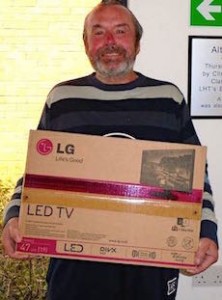 In our work with homeless charities and Housing Associations, we often hear stories of ex-homeless people struggling to adapt to living in a home of their own. Rough sleeping often means having people around all the time, with very little privacy. Moving into a homeless hostel can create a new sense of community with other residents, staff and visitors. But after months or even years of this moving into a new, empty flat can be daunting and lonely. In some cases newly housed people have fallen back into damaging behaviours or even chosen to live on the streets again to escape that loneliness. That is why we believe it is so beneficial for newly housed people to have a TV or a radio to make their house feel like a home. In this week’s blog, Blackpool Coastal Housing tells us about how they helped Mr A move into a home of his own, after sleeping rough for 5 years.
In our work with homeless charities and Housing Associations, we often hear stories of ex-homeless people struggling to adapt to living in a home of their own. Rough sleeping often means having people around all the time, with very little privacy. Moving into a homeless hostel can create a new sense of community with other residents, staff and visitors. But after months or even years of this moving into a new, empty flat can be daunting and lonely. In some cases newly housed people have fallen back into damaging behaviours or even chosen to live on the streets again to escape that loneliness. That is why we believe it is so beneficial for newly housed people to have a TV or a radio to make their house feel like a home. In this week’s blog, Blackpool Coastal Housing tells us about how they helped Mr A move into a home of his own, after sleeping rough for 5 years.
Spotlight on: Growing Rooms

When the University of York researched our work last year, they found that media technology could help recovering addicts to reduce their use of damaging substances. That is why we donate TVs and radios to organisations like Growing Rooms, a service offered by St George’s Crypt to help homeless people overcome addiction.
Here, Christine from St George’s Crypt tells us more about Growing Rooms and the difference it makes to service users.
Spotlight on: Glentanar Court
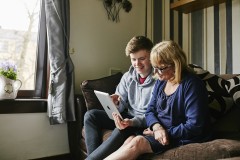 Today’s guest blog is part of our Spotlight on Homeless month and has been written by Sarah Findlay of Cairn Housing Association, which provides affordable housing and support services to thousands of people across Scotland. One of those houses is Glentanar Court where Sarah develops a variety of projects and activities for residents. Here, Sarah tells us about how social media and WaveLength tablet computers can bring tenants together.
Today’s guest blog is part of our Spotlight on Homeless month and has been written by Sarah Findlay of Cairn Housing Association, which provides affordable housing and support services to thousands of people across Scotland. One of those houses is Glentanar Court where Sarah develops a variety of projects and activities for residents. Here, Sarah tells us about how social media and WaveLength tablet computers can bring tenants together.
To help us fund more projects like these please donate to our Spotlight campaign today. Thank you.
St. George’s Crypt, Leeds
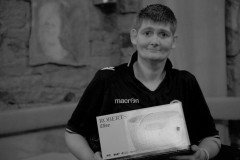 This May we went to Leeds to visit St. George’s Crypt. St. George’s offers homeless men and women in and around the city vital support in the form of accommodation, training and therapeutic care. For this week’s blog, Christine from St. George’s tells us more about the work that she and her colleagues do at the Crypt, and the ways that we at WaveLength are able to help them help others.
This May we went to Leeds to visit St. George’s Crypt. St. George’s offers homeless men and women in and around the city vital support in the form of accommodation, training and therapeutic care. For this week’s blog, Christine from St. George’s tells us more about the work that she and her colleagues do at the Crypt, and the ways that we at WaveLength are able to help them help others.
Spotlight on Homelessness
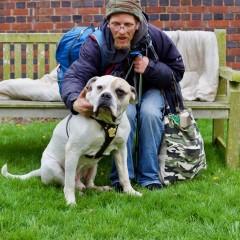
This month we will be shining the spotlight on loneliness caused by homelessness.
Loneliness and the Man Box
 This month we have been focussing on men as part of our Spotlight on Loneliness campaign. We have seen how family breakdown and domestic abuse can lead men into homelessness, and how isolating this can be. In this blog post, we will explore how the Man Box and societal pressure can leave men battling loneliness and isolation.
This month we have been focussing on men as part of our Spotlight on Loneliness campaign. We have seen how family breakdown and domestic abuse can lead men into homelessness, and how isolating this can be. In this blog post, we will explore how the Man Box and societal pressure can leave men battling loneliness and isolation.
Spotlight on Loneliness – Men
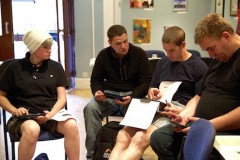 Throughout May we will be exploring loneliness among men. More than one in three men in the UK struggle with loneliness, which can lead to depression, isolation and health issues. In this week’s blog St Anne’s Hostel tells us about how family breakdown and poverty put men at risk of homelessness, and about the loneliness that this can cause them.
Throughout May we will be exploring loneliness among men. More than one in three men in the UK struggle with loneliness, which can lead to depression, isolation and health issues. In this week’s blog St Anne’s Hostel tells us about how family breakdown and poverty put men at risk of homelessness, and about the loneliness that this can cause them.
Spotlight on care leavers: Coaching
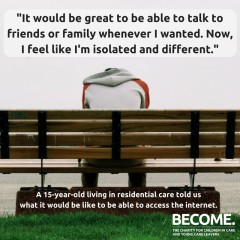 At the beginning of our Spotlight on Care Leavers month, we learnt why this group of young adults can be particularly at risk of loneliness. We’ve heard from care leavers like Kayla, who have benefited from Wavelength’s support. In her final post, Ruth explains how Become’s new coaching programme is trying to tackle some of the root causes of loneliness among this group of young people.
At the beginning of our Spotlight on Care Leavers month, we learnt why this group of young adults can be particularly at risk of loneliness. We’ve heard from care leavers like Kayla, who have benefited from Wavelength’s support. In her final post, Ruth explains how Become’s new coaching programme is trying to tackle some of the root causes of loneliness among this group of young people.
Spotlight on Care Leavers: Kayla’s Story
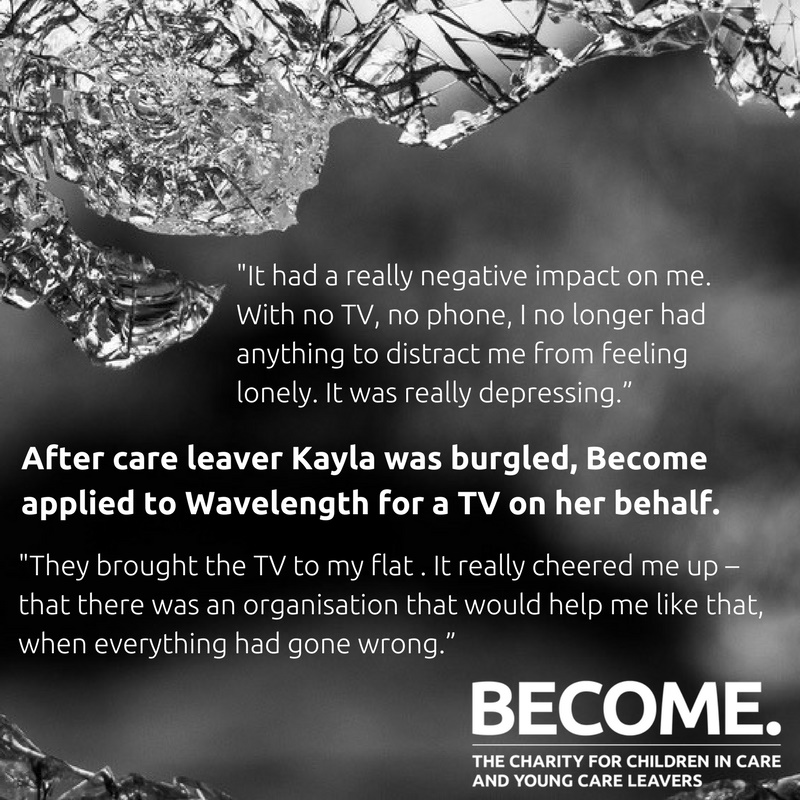 In 2015 we started working with Become (previously called the Who Cares? Trust) to reach young care leavers who were suffering from loneliness and isolation. As we have seen throughout this month leaving care can be an isolating experience, and the young people who do often receive little support from previous foster homes and families or the local authority when things get tough. Two years ago we worked with Become to provide a new TV to Kayla: this is her story.
In 2015 we started working with Become (previously called the Who Cares? Trust) to reach young care leavers who were suffering from loneliness and isolation. As we have seen throughout this month leaving care can be an isolating experience, and the young people who do often receive little support from previous foster homes and families or the local authority when things get tough. Two years ago we worked with Become to provide a new TV to Kayla: this is her story.
Blue Triangle Housing Association
 This week’s blog post is written by Leanne from Blue Triangle Housing Association, who explains how loneliness affects the young people that BTHA supports.
This week’s blog post is written by Leanne from Blue Triangle Housing Association, who explains how loneliness affects the young people that BTHA supports.
Spotlight on Loneliness: Care Leavers
 This month we are shining the spotlight on loneliness among young people leaving care. In this week’s blog post, Ruth from Become (previously the Who Cares? Trust) explains why these young people are at risk of loneliness and social isolation.
This month we are shining the spotlight on loneliness among young people leaving care. In this week’s blog post, Ruth from Become (previously the Who Cares? Trust) explains why these young people are at risk of loneliness and social isolation.
Loneliness and Dementia
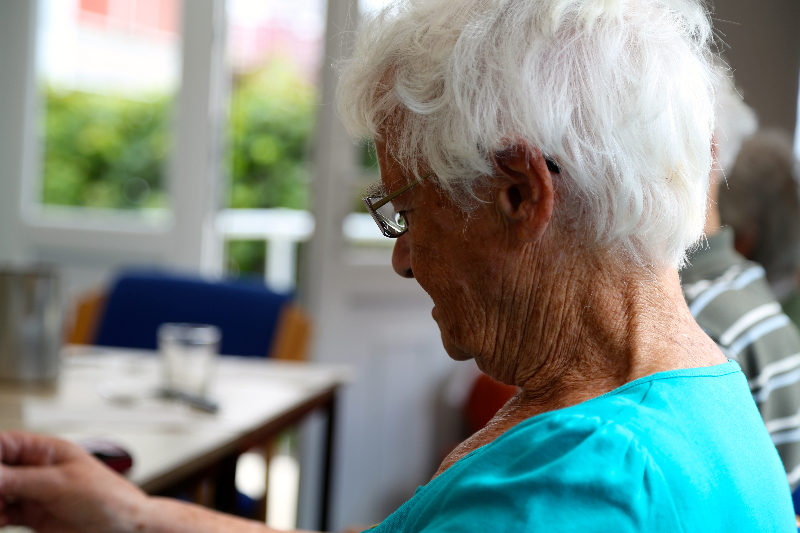 For those who suffer from dementia, loneliness can be a very real problem. And it seems that the problem works both ways, as healthy elderly people who feel lonely are more likely to develop the disease at a later date. Here we explore the relationship between loneliness and dementia, and how technology can help.
For those who suffer from dementia, loneliness can be a very real problem. And it seems that the problem works both ways, as healthy elderly people who feel lonely are more likely to develop the disease at a later date. Here we explore the relationship between loneliness and dementia, and how technology can help.
Spotlight on the Elderly
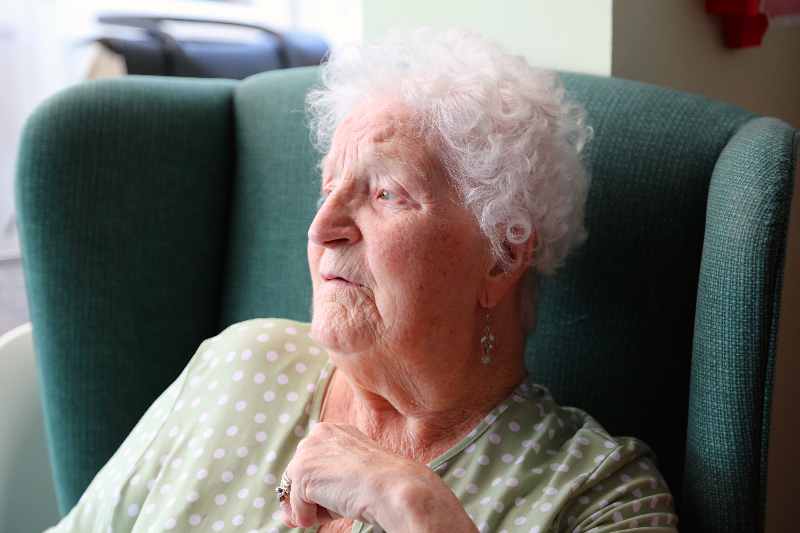 This month, as part of our Spotlight On Loneliness campaign, we will be focussing on loneliness and old age. For many people, the elderly are the first group that come to mind when the topics of loneliness and isolation are raised. This is partly down to campaigns such as John Lewis’ 2015 Christmas advert The Man On The Moon, which have helped to raise awareness of the loneliness that many people feel in old age.
This month, as part of our Spotlight On Loneliness campaign, we will be focussing on loneliness and old age. For many people, the elderly are the first group that come to mind when the topics of loneliness and isolation are raised. This is partly down to campaigns such as John Lewis’ 2015 Christmas advert The Man On The Moon, which have helped to raise awareness of the loneliness that many people feel in old age.
Workplace Loneliness: Expert Advice
Throughout February we have been exploring the issue of office loneliness – the impact of being lonely at work, signs that your colleagues might be suffering from loneliness and tips from organisations and entrepreneurs for building a happy workplace.
To round off our Loneliness in the Workplace month, coach and training consultant Katie Duckworth kindly agreed to author a guest blog for us. Here she shares her experience of office loneliness, and her expertise on how employers can support their workers to feel less lonely and isolated in their work.
innocent workplace happiness
 As part of our Loneliness in Business month we are sharing advice on how employers can help their workers avoid loneliness in the workplace. This week, innocent drinks has told us how they keep their team happy and healthy in Fruit Towers and beyond.
As part of our Loneliness in Business month we are sharing advice on how employers can help their workers avoid loneliness in the workplace. This week, innocent drinks has told us how they keep their team happy and healthy in Fruit Towers and beyond.
How to tell if someone is lonely
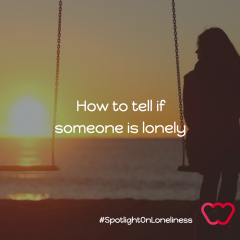 It’s easy to imagine that loneliness is a problem that affects only the very young and the very old. Often our image of a lonely person is a housebound elderly widow sitting alone in her empty house, or the little boy standing on a busy school playground with no friends to play with. However, the statistics tell a very different story. Up to 30% of the population of the UK reports feeling chronically lonely; one in ten people feel that they lack a close friend to confide in, and one in five feel unloved. That means that you almost certainly live, work or socialise with someone who feels lonely.
It’s easy to imagine that loneliness is a problem that affects only the very young and the very old. Often our image of a lonely person is a housebound elderly widow sitting alone in her empty house, or the little boy standing on a busy school playground with no friends to play with. However, the statistics tell a very different story. Up to 30% of the population of the UK reports feeling chronically lonely; one in ten people feel that they lack a close friend to confide in, and one in five feel unloved. That means that you almost certainly live, work or socialise with someone who feels lonely.

